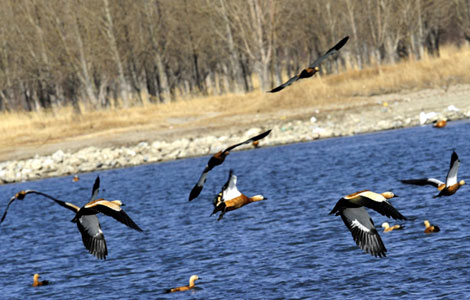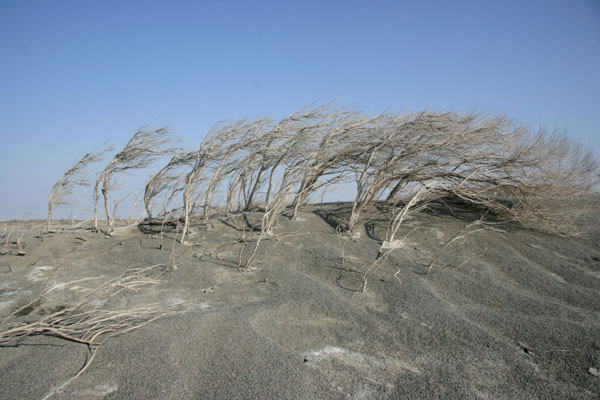Tide of progress sees water levels fall
Updated: 2012-02-02 09:41
By Shao Wei (China Daily)
|
|||||||||||
Restaurateurs around Chaiwopu Lake, the largest freshwater lake in Urumqi, are in a bit of a pickle. They are losing one of their primary sources of fish, the lake itself.
"The 'big-plate fish' had been one of our specialties," said Ma Xiaohui, owner for 14 years of a small lakeside restaurant. "But the lake has dried up sharply in recent years. Now there are hardly any fish to buy."
Ma said that she actually sees Chaiwopu Lake die slowly every day.
As the water level falls the marshes at its edge turn dry and cattle and sheep no longer graze picturesquely near there.
"The lake used to provide wonderful entertainment," she said. But there's more at stake than beautiful views and fish supplies.
About 3.1 million people live in Urumqi, and "the lake supplies 220,000 cubic meters of water to Urumqi residents every day. The increasing water consumption greatly exceeds the water fed to the lake," said Hu Yongqi, director of the Chaiwopu Lake managerial department in Northwest China's Xinjiang Uygur autonomous region.
Hu has witnessed the changes at the lake during his tenure there. Twenty years ago, the lake covered 30 square kilometers, with an average depth of 4.2 meters, he said. By last year, it had shrunk by nearly 10 sq km and was a mere 50 cm deep at the center.
Moreover, the shoreline has receded 20 meters, and 350 sq km of marshes around the lake have disappeared.
"The lake's ecological system has been severely damaged," Hu said. "With no effective protective measures, the lake will disappear soon. Maybe in 2013, or 2015. Who knows? But it won't be a happy ending for any of us."
Editor's Picks

|

|

|

|

|

|








